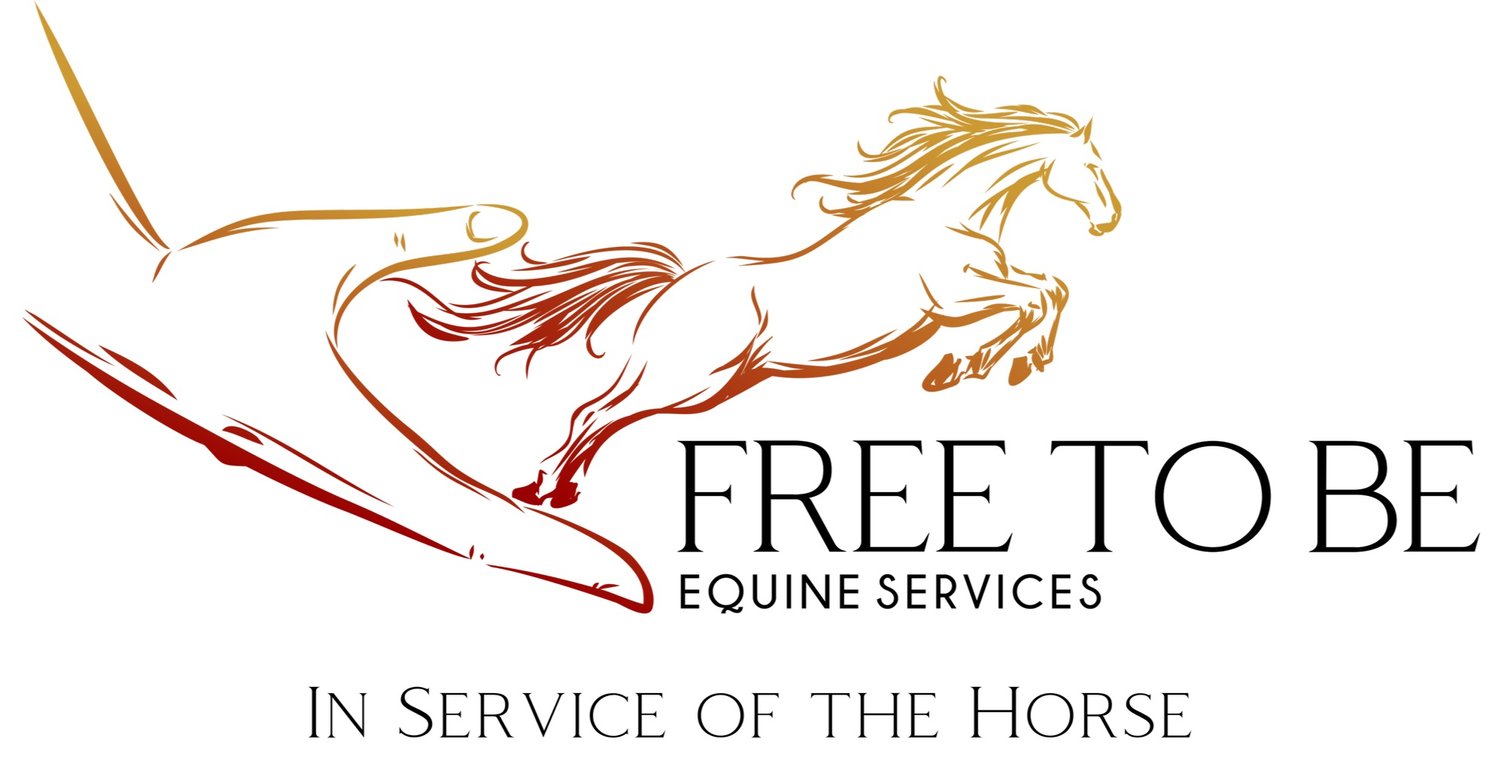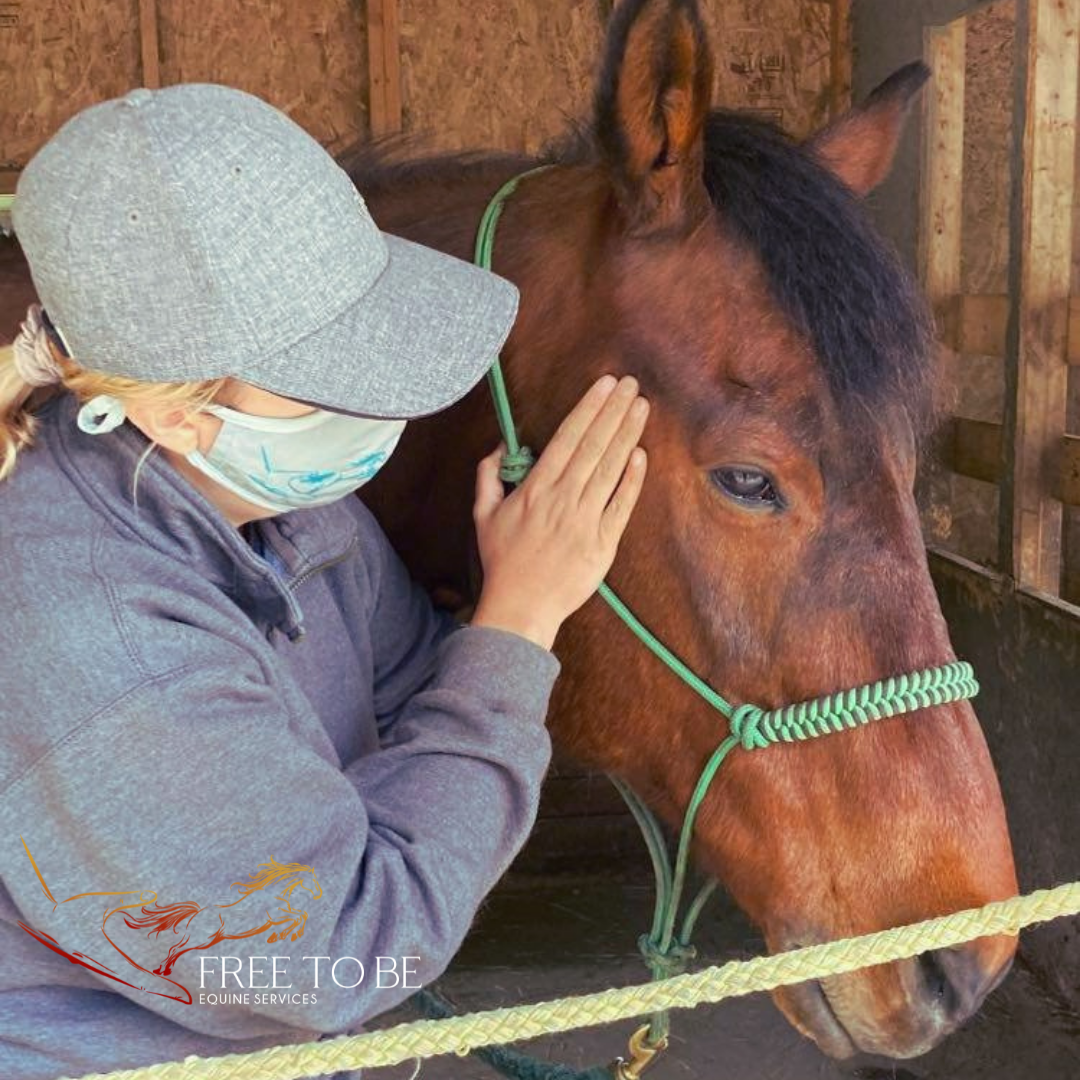I was inspired to write this article not just because of my own experiences, but also because of the other equine service providers that I am surrounded by and the struggles they’ve had in their professional lives. Coming to light in mainstream society is the concept of “burnout” and why “the hustle” isn’t always something healthy and admirable. Professionals - particularly self employed professionals and especially equine professionals – understand this concept and have most likely felt the repercussions of a poor work/life balance on our physical and mental health. It’s a tough industry in which to be successful. We’re working long and inconsistent hours, in all kinds of weather, with large animals with their own thoughts and feelings, and with owners who are feeling the pinch of working their own long hours in order to afford their increasingly more expensive horse hobbies. It’s competitive, it’s draining, but at the end of the day, we do love our jobs – we’re here for the horses, otherwise we would likely be working in a completely different field with better pay, better job security, and probably less dirt and manure!
Slowly but surely, equine professionals are figuring out how much more useful and effective we are in our jobs with horses when we’re feeling rested, safe, secure, and calm. We’re figuring out how to do our accounting properly to make sure we’re not just covering our costs, but actually making enough of a profit to be able to pay our bills and put some money in our savings (most of us working in the industry don’t have health insurance, pensions, or sick pay). We’re learning how to set our boundaries, and how to stick to our schedules so that we aren’t working on what should be our days and evenings off. We know what we need our clients to do in order for us to do our jobs properly. Each professional has their own needs, but most are pretty basic and universal among us.
The problem lies in the divide between the service providers and the clients. Don’t get me wrong – many, if not most clients are great! They respect the work and the time of their professionals, they take care of the professional’s needs as well as communicate their own, they book ahead, they take the advice given and they do their “homework”. However, professionals are still feeling the effects of burnout – and while there are many factors to consider, a major issue is a disconnect between the professional’s boundaries and the behaviour of some of their clients. This is happening to all of us – farriers, veterinarians, bodyworkers and therapists, trainers, coaches, saddle fitters, etc.
Professionals are horse owners too – we get it. Life gets in the way sometimes. No one tries to be a “bad client” on purpose. And we aren’t perfect service providers, either. Sometimes we’re running late. Sometimes we overbooked ourselves and we have to rearrange our schedule. Sometimes we have an emergency and have to cancel. These things happen. What really matters is what becomes habitual behaviour, and that goes for both the professional and the client.
What can you do as a horse owner to take care of your horse’s care team, like they take care of you and your horse? Here are my top 5 suggestions.
Pay them. I know that sounds like common sense, but remember that forgetting to pay or being late on payment is adding unnecessary stress and time for the professional who has to keep track of who has and has not paid them, and take the time to remind you to pay. Not paying your bill on time can also cause anxiety around cash flow and job security for service providers, whose wages trickle in slowly and inconsistently rather than receiving a dependable paycheque.
Be mindful of your own schedule and finances, so that you don’t have to cancel your appointment (emergencies aside). We all have situations where we have to cancel or reschedule - life happens. If you’re continually cancelling your appointments with professionals because you get busy or do not have the funds, please think about that how that is causing the professional to rearrange their other appointments that day or try to fill your appointment slot. If you make an appointment with a service provider, try your best to prioritize that appointment. Make sure that you have the money to pay for it and the time in your schedule, and give plenty of notice if you need to cancel - otherwise your professional may be sitting in their car for a couple of hours between appointments, not making any money, during what would have been your appointment time.
Make sure your horse is reasonably clean, fed, and preferably caught before the professional arrives. If we have to wait while you catch and groom your horse, we may need to cut our time with you and your horse short or else be late for all of our other clients that day. During your appointment, we would much rather be focussing on you and your horse than worrying about the time - so make sure you get to the barn early enough to have your horse ready.
Be understanding when the professional needs to schedule you on a day when they are already in the area, or if they have to raise their prices. I can guarantee you that service providers agonize over their scheduling and their prices, and if we have to make someone wait, or tell our clients that our prices are going up, this is only because we HAVE to make those changes or we risk not making any profit (or worse, spending more than we are making). For a professional providing a service as their full time job, we are not only paying for materials, but also gas, vehicle maintenance, taxes, insurance (vehicle, equipment, and liability), education, tools, rent and/or employee wages, and our own time. Sometimes you might find someone who is a few dollars cheaper – but why is that? Are they less experienced? Do they have another job, and this is just their side hustle? Do they pay for insurance? Do they take continued education courses regularly? We all have to start somewhere, but please keep these things in mind before you switch service providers just to save a bit of money here and there.
Ask them what they need. Every professional is going to have their own needs from their clients. Maybe they need you to schedule your appointments in advance, pay through a specific method, give them a clean and dry place to work, spend a few minutes with your horse to get them in the right frame of mind for the appointment, etc. – but you won’t know until you ask. Communication is key, and this goes both ways – your service provider should also be asking you as the owner how things are going with your horse and if any of your needs are not being met.
I hope this helps to shed some light on how equine professionals are trying to shape this industry into a pleasant and safe environment in which to make a living. What would any of us do without our horses’ care team? We should be doing our best to keep the lines of communication open and make sure that we are caring for the caretakers.
Kaiti Elliott of Free to Be Equine Services
Certified Equine Performance Therapist
Fraser Valley, BC Canada

